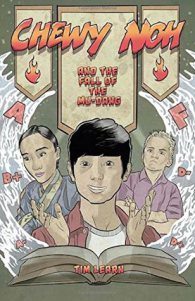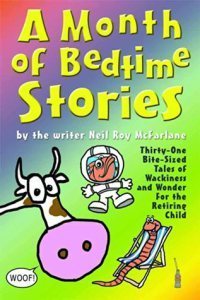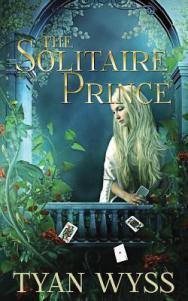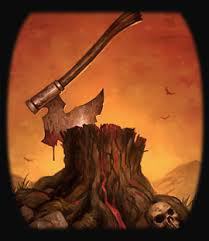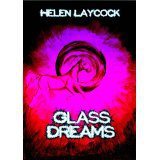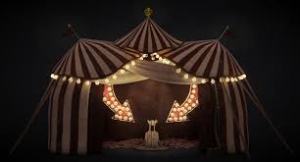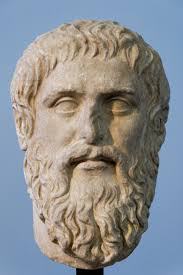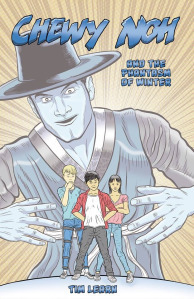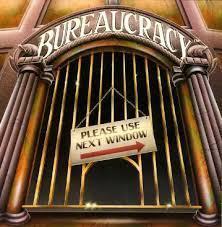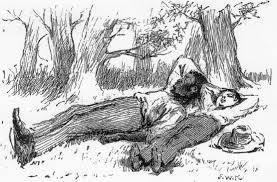Tim Learn's Blog, page 26
March 10, 2015
Chewy Noh and the Fall of the Mu-dang – (wookie sound)
Critical, and cutting…but one hundred percent, brutally honest.
This guy rocks!
 Originally posted on Glenn Hates Books:
Originally posted on Glenn Hates Books:
3 of 5 Not-Much-Of-A-Wookie Stars – Chewy Noh and the Fall of the Mu-dang by Tim Learn.
This book reminds me too much of school. I fucking hated school. All that reading and writing, and paying attention in class… Fuck that shit. I’ve got better things to do, goddamnit.
Chewy – what a silly fucking name. At first, I thought maybe the author wasn’t aware of the most famous ‘Chewy’. But then a bully in this story made the comment “So your mother named you after a Wookie? Nice.”
But this Chewy is nothing like a Wookie. He’s a tiny little grade school weakling. He’s like a foot shorter than everyone. Not because he’s Korean. No, that’s got nothing to do with it. He was just born to be a fucking pussy boy.
But at least there’s a tradeoff. Sure, he’s frail and weak, but at least he’s got superpowers…
View original 333 more words

March 5, 2015
A Month of Bedtime Stories
A Month of Bedtime Stories
(Kid’s book)
By Neil McFarlane
Rating
Synopsis
This is a book about YOU—you and all the things you don’t have, but know where to get. Through it all, you meet talking creatures, go to different dimensions, and travel through time. Sadly, in the end, you always forget.
Prose/Structure
This book—like some daring short stories—attempts to use the formidable ‘second person’ narrative. Luckily, it succeeds where many have failed, and with its light style it keeps things cheery and positive, perfect for its target audience: children.
One of the most overwhelming aspects is how the author keeps things inventive. There are thirty-one short stories—one for each night—and not one of them treads on similar topics or reruns the adventure. Where he came up with all the ideas is mind-boggling, and some of the best parts comes from the unpredictable protagonist—you!
“’I gave you that mark. It makes you an honorary bear…’ (said the bear.) You thought to yourself, I helped this bear and all he gave me was a dirty hand. ”
or the non-sequitars:
Johnny McBear raised his claws and roared again, then came forward to attack you.
“Noooo!” you cried, and you put your hands up like this. “Nooo! Don’t eat my pants!”
But, ultimately, as imaginative as it was, I found certain details in that made me give it four stars. One: certain areas get a little meta, which seems too mature for the kid readers it’s aiming for; and Two: being for younger ones, I understand why some jokes are aimed at the parents who may be reading it to their children, but no matter how well-described these weird worlds are, kids want to see pictures. Without them, this book may not fare so well.
Overall
This book is reminiscent of early Seuss in the ilk of ‘The 500 Hats of Bartholomew Cubbins,” rich with words, lacking in pictures. It covers all the stops of wacky kid stories, twisting everyday perceptions of where things come from and how things work. Nothing is ever as easy as it may seem. On top of all of that, you have to watch out for annoying cows—every animal is just another animal wearing a mask.
If you want to get a copy for yourself, click here.
If you want to find out more about this amazing author, check him out here.

March 3, 2015
Solitaire Prince
The Solitaire Prince
(Middle Grade/ Young Adult) (Fantasy)
By Tyan Wyss
Rating
Synopsis
With her upcoming birthday, Princess Christine is forced to stipulate the requirements for the man she is to marry. Her stipulation: to play and win three games of solitaire. Easy, no? But should the suitor fail, their fates belong to the chopping block, and the kingdom’s future looks uncertain without a new king.
Prose/Structure
Although this story may start out sounding like a run-of-the-mill fairytale, it departs greatly from this template with a villain, King Henry, who is not diabolic like a witch or conniving like a distrustful advisor. He is a true product of his place and time. In this way, there are no stock fairytale caricatures. Each character is unique and distinct.
And, almost immediately, the story grabs you with Princess Christine’s marriage stipulation declaiming her vying suitors to win at solitaire or die. There is no wasting time, and, luckily, we get to see blood early on, knowing this is no joke.
But what’s even better is that the story doesn’t stop there. Each chapter, instead of rehashing the same idea, it twists and alters, pitting our characters more and more against each other. Every time a new element is added, the game changes and more stakes are put on the line.
However, if I had to give any criticism, it would be that the beginning dragged slightly with the overly descriptive paragraphs in chapter one. It felt like over and over again we were being told—‘Hey! Christine is smart!’ And it got to be a bit repetitious. Some less patient readers may drop the book before getting through. But, I would advise them to wait. One hundred percent, by the time you get into chapter two you will be hooked. By then, you are no longer hampered by the antiquated writing style as well—it becomes second nature.
Overall
All in all, it took me two days to finish it and it would’ve been shorter had I more free time to do so. It is gripping and adventurous from the beginning and always keeps you guessing. I highly suggest it.
If you want to check out this book, click here.
Or if you want to learn more about the author, her page is here.

March 1, 2015
Tough Guys
Tough Guys
(Adult)
By Matt Phillips
Rating
Synopsis
Guns, girls, bourbon (of course!) and…eventually something more.
Prose/structure
It’s a book of short stories—some nothing more than a page—revolving around tough guys, much like the title describes. Short stories can be a hard subsection of writing to fill. You need the beginning to be instantly gripping, otherwise, there’s no time to make it up. A novel calls for patience. Shorts—they’re the opposite.
Luckily, each story—even the extremely short ones—has that spark right from the beginning. The author knows how to draw you in, give you the details you need and start the ball rolling without any delays. How does he do it? With snappy sentences.
‘Alasce stood two dog hairs over five feet three inches. (The Draw Test)’
Or
‘He savored the burn of the engine as the little needles in the dashboard shot up toward the red. It was like a line of cocaine to the head. (Last Shift)’
Besides these zingers, every other line is crafted with a simple and terse style that rings of Hemingway, if Hemingway were to dabble in pulp fiction.
From a writer’s standpoint of view, there is an even more interesting progression that can be seen through the stories as they are ordered. The first half of the book seems rife with vignettes that are adolescent and work so hard at their machismo that any reader will be left with a feeling of watching small scenes from movies that are nothing more than rehashing of common, stereotypical bad-ass males. From a creative standpoint, the protagonists are flat and many times the side characters in no way act accordingly to the situations that are thrust upon them.
However, suddenly about midway through not only the collection, but also the story ‘Last Shift’ a strange transformation happens: the writing grows up, and so do all the characters and scenes. What was once adolescent is now mature, strong, and insightful. We are no longer hit on the head with phrases or actions that scream ‘Hey! This guys a bad-ass!’ Instead, we’re able to dissect it for ourselves by clearly understanding the motives of these people who before seemed to only move around in order to give us the impression of being ‘tough.’
In this way, it was a particular surprise.
Overall
I would recommend this book for anyone out there that wants to read something quick and fun—someone who likes fast action, but also for someone who wants to see a writer grow. The first half will make you think ‘Tarantino.’ But the end is where you’ll find a new voice with highly entertaining and well-written stories and deep characters.
If you want to know more about Matt Phillips, the author, click here.
Otherwise, you can find his book, here.

February 24, 2015
Review 1) Glass Dreams
Glass Dreams / Helen Laycock
(Middle Grade)
Rating
Synopsis
The death of any close relative is life altering, but for Jake, it doesn’t stop there when, after his grandmother’s death, he discovers a box that holds the answers to his past, present, and future. With little else, he runs away from orphan life to the only other option: Fantazi’s circus; and is drawn into a world of excitement and danger.
Prose / Structure
“Jake knew it was finally time. Time to grow up. Time to take responsibility.” (p.1)
From this short opener, Glass Dreams wastes no time disrupting the main character, Jake’s world, sending us along with it. However, despite the immediate disturbance, no scene is left dashed or poorly drawn. It is written with an unbelievably terse and efficient style. There is not a single word that does not add just enough to the picture without weighing too heavily. Many authors lay on far too many adjectives or descriptive paragraphs dragging out the plot, drawing it to a standstill. Here, Laycock does not. Even her brief scene of the orphanage to which Jake is subjected is just long enough for us to understand that life there is not good. If its occupants don’t pick on you, the caretakers forget you.
Some of the most powerful lines come from her similes—sharp and vivid. For example:
“He really just wanted to blurt out, ‘My Grandma’s dead’, but he knew that when it came to it, the words would stick like pebbles in his throat.” (Chapter 1)
Or
“His hands clenched and his arms were like those of wooden soldiers, glued straight onto his sides.” (Chapter 4)
That being said, no book is without its problems.
A little over halfway through, the story begins to move forward when Jake is told the dark secret of the circus he has joined. Sadly, from this point on each chapter is no longer a richly drawn scene, but many scenes dashed together. Where in the beginning, each episode is full and well told; the latter half is a bit rushed and not so thoroughly unpacked. And for this reason can leave the reader a bit saddened only because the story started out so wonderfully.
As regards to characters, Jake is loveable and endearing to the reader soon after the start and is easily relatable in a very tangible way. Who hasn’t lost a relative or something dear to them? The reader roots for him fully and the world only opens up more as we meet Khala, a young circus girl, pretty but full of gusto; and the prize character, Cedric, a smart-aleck dwarf with a hankering to throw knives. He lights up every scene he’s in with his Chihuahua, Audrey.
H
owever, again, a weak point befalls the main opposing character, our antagonist, Gino. He is the circus master—cruel and greedy—a performer in his own right as a strongman, yet all of his clout seems to stem from actions in the past, bad deeds told to us from Khala or her mother. Little is given to us to understand the true severity of his character or to see the real monster he is purported to be. When it comes to bad guys, a little more vicious is always better.
Overall
This book deserves four stars for its amazing beginning and well-imagined world. It is so light despite its dark topics, never treading too far into the morbidity other books of the same nature may do. It is fun, and when it comes to middle grade books, that’s what they should be and this book succeeds in that respect. Besides that, it is a quick read, taking me less than three hours over three days, so it is a wonderful short trip into another world. 
If you are interested, you can find Glass Dreams here.
And more about the author, Helen Laycock, at her Amazon page, here.

February 14, 2015
Why write?
While wrestling with my students on why they should write—at all—I came upon a quote from Plato’s Phaedrus that helped me understand what exactly I wanted to express to them. In it, Teuth explains how he invented writing and Thamus is giving his critique of this new invention.
‘Those who acquire it [writing] will cease to exercise their memory and become forgetful…they will receive a quantity of information without proper instruction, and in consequence be thought very knowledgeable when they are for the most part quite ignorant.’
A lot of what he says about writing is true. By writing it down, or finding it in books, our skill at recalling information has probably atrophied a bit. Not to mention, the dangerous notion that most any teenager can relate to having read a book that seemingly changes one’s life forever—or at least until the next week’s required reading does so again. But where Thamus goes astray is that he is really only critiquing reading.
Writing, on the other hand, is distinctly different. Though reading may boast itself as a solo task, done by individuals and not quite as good when done together, it truly isn’t. The experience of reading is quite often shared afterwards in talking of what one has read. Writing cannot be spread around in this way. It is truly an individual experience because as the writer sets the words down, in their strict thoughtful manner, no one else can join in, feeling the flow of words and the focused direction of thought.
When one concentrates on writing—whether it be fiction of non-fiction, a letter or an essay—you begin to see something form, an amorphous message or idea that forces itself upon you to be not only reviewed, but further chewed as you nitpick the structure of sentences with their word choices and order. It is not reflective, like reading, it is honed thinking, almost in the ilk of meditation, focused and precise like a beam of light.
This may be why so many writers claim astonishment at their final product, claiming it could not have come from them. The end result is refined and bare, but clean of all the normal, everyday flotsam. Normal thinking is so topical and lacking in depth that when anyone writes, they must dig deeper, striving for something of more substance; otherwise, it is not real writing. It becomes memos on the refrigerator.
For the reader, Thamus was right, it offers little, but for those who write…

January 28, 2015
Kindle Scout
I’ve decided to try my chances at Amazon’s new Kindle Scout. I’ve entered my book, ‘Chewy Noh and the Phantasm of Winter.’ A link is below.

January 25, 2015
A Twainese Digression
Revisiting a classic is strange.
Currently, I’m rereading ‘Huck Finn’ with my students. The redolent images captured from high school clearly don’t fill out this book. The hodge-podgy, pinball like story—one emulated far too often with unknowing protagonists shuffling into random, almost unconnected encounters—might be at fault here. But with ‘Huck,’ it seems more like a ‘Pilgrim’s Progress’ rife with allegory—although Twain’s yarn is a thousand times funnier than Bunyan’s religious trial. Hey! Some guys are religious.
Nonetheless, the overall moment that capitulated me into this digression began with the reuniting of Huck and Tom at the novel’s end. With Jim’s capture, both decide to help him escape from slavery, and Huck’s has a plan, clear cut and easy. But smart, well-read Tom sees it another way.
“Why certainly it [Huck’s plan] would work, like rats a-fighting. But it’s too blame’ simple; there ain’t nothing to it. What’s the good of a plan that ain’t no more trouble than that?”
Though this reminded me an awful much of every single young man I’ve ever known—myself included—Huck’s reaction is the STOP sign that hit me.
“He told me what it [Tom’s plan] was, and I see in a minute it was worth fifteen fo mine, FOR STYLE [my emphasis], and would make Jim just as free a man as mine would, and maybe get us all killed besides.”
Following this, Twain continued to roundhouse me in the head with the details. Despite being able to steal the key to free Jim, they had to dig him out. Never mind using shovels. Spoons were the order of the day. Style, clearly, takes time. And while they’re at it—toss in a moat. The more difficulty, the better. I could not believe how accurate all of this was.
Style.
Writers, artists, most everyone feels the pressure of it at some time or another. We use it to identify ourselves or, at the most, separate us from others, to be unique. But, when it comes to the practical things in life, maybe style isn’t so important.
After all, most of the time, style just seems like a euphemism for bureaucracy.
Then again, maybe I’m thinking too hard. Maybe Twain was just trying to make me laugh.

January 23, 2015
The Dirge
“…the most dangerous enemy to truth and freedom, the solid unmoving cattle of the majority. Oh God, the terrible tyranny of the majority.” (Fahrenheit 451)
Hearing another’s comments on the deluge of low quality, unoriginal writing (ie. shit) caused by self-publishing in the ilk of Amazon and the Internet, I find it hard to completely agree with this thinking. Although Alexis de Tocqueville reviews our method of majority-rule to be less than desirable.
“The moral authority of the majority is partly based upon the notion that there is more intelligence and wisdom in a number of men united than in a single individual, and that the number of the legislators is more important than their quality.” (Tocqueville)
In that way, it may be true that the same drivel is reproduced and slurped up by willing readers/watchers–the indomitable ‘dumbing’ of America–that a fellow writer complained about. Seeing this happen seemed to make her disheartened and, maybe, a little disappointed as well, in readers as a whole. After all, when the majority is involved, it tends to sift to the lowest, simplest form–the definition of mass. And that’s where my thoughts diverge.
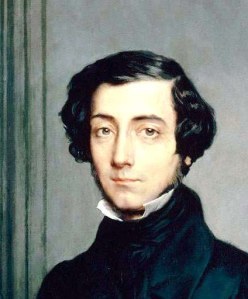 “A stranger does, indeed, sometimes meet with Americans who dissent from the rigor of these formulas, with men who deplore the defects of the laws, the mutability and the ignorance of democracy, who even go so far as to observe the evil tendencies that impair…”(Toqueville)
“A stranger does, indeed, sometimes meet with Americans who dissent from the rigor of these formulas, with men who deplore the defects of the laws, the mutability and the ignorance of democracy, who even go so far as to observe the evil tendencies that impair…”(Toqueville)
Where does it diverge to? The opposite. And with it, I cannot always say the view is much better.
The majority is responsible for many mistakes in history (the holocaust, slavery, etc.) but the alternative is leaving this decision-making up to an individual or an amalgam of people acting individually to discern what ‘is or is not’ to be created, followed, and distributed. The strong point of letting the majority speak is that even the voices from the fringe have their airtime, despite the din with which they must compete. A solitary deciding figure robs the ability to gain an audience for any voice that deviates from the Salon. Then a private gallery is needed–is that not the Internet?
I’m no blind freedom-toter, brandishing the “f-word’s” use anymore than its more infamous ‘F’ brothers. But coming from a country that boasts its freedom like a pledge–does it not make sense that when it comes to culture–in the extent of media in all its forms from music to writing–that the choice for what we want be left up to us, rather than be presented with a menu of pre-selected items?
Even the first restaurant-goers most likely appluaded the opportunity to waffle over a second entree.

January 21, 2015
Chewy 2
I also want to get the second Chewy book fully completely. Currently, Trevor is finishing the cover and then I want to try out Amazon’s Kindlescout to see how I can fare. After that, I need to get it ready to be printed for my students.



